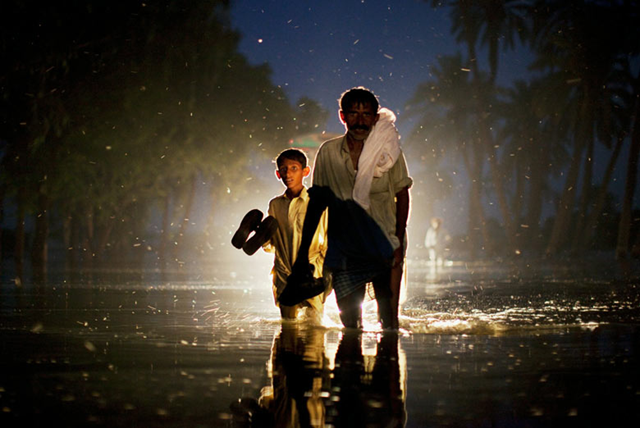Commemorating the one-year anniversary of the devastating 2010 Pakistan floods
Contact: Javeria Malik (0300 8325911) javeria.malik@actionaid.org Zakaria Nutkani (0300 5193304) Zakaria.nutkani@actionaid.org May 25 (ActionAid) – “Women and girls have been the worst victims of 2010 floods due to their pre-existing vulnerabilities. After almost a year of the devastating floods, millions of women are still desperately striving to rebuild their lives and livelihoods. “Therefore it is imperative that government and NGOs keep their focus on women’s rehabilitation. Only strong, empowered women can build a safe and prosperous society,” said Jemal Ahmed, ActionAid Pakistan’s Country Director, while addressing the women’s assembly at the conclusion of women’s caravan at the National Press Club. “Floods have pushed rural women into further poverty and suffering, but they have immense resilience, and courage of conviction; which is why they are here today to tell the world of their problems, and demand prioritization in the fiscal budget 2011-12. Government must allocate budget for women support programme, which means they should be given watan cards, proper shelter and income generating opportunities, ” he added. Sameena Nazir, Director of Potohar Organisation for Development Advocacy (PODA) highlighted that the impact of floods is not over yet. There are still millions of internally displaced families that are seeking to rebuild their lives. Therefore budgets should be allocated at federal and provincial levels so that poor people can be supported to overcome the flood devastation. She further pointed out that since women primarily have the responsibility of feeding every person in the family, they should also be given assistance in terms of food production and food storage facilities. During the event, women and girls shared their personal stories and testimonies with the audience. They said that poverty has turned women into beggars. One such woman is Manzooran Mai from Taunsa (South Punjab) who said she had turned to begging to feed her six children. Girls like Farzana shared that they have had to leave school as their parents cannot afford to buy books and pay school fees. Woman shared that they have not been given watan cards, while in some cases the watan cards are unable to draw any money from the bank. 14 year old Umaima from Kot Adu (South Punjab) says, “Only the rich are getting support from the government while we poor people are at the mercy of nature.” The floods affected 78 out of a total of 141 districts in Pakistan, covering one third of its geographical area and more than 18 million people (one tenth of the population). 14 million people (including 9.18 million women) were in need of immediate humanitarian assistance. An estimated area of 50,000 square kilometers (km) was affected, 2.2 million hectares of standing crops were destroyed and half a million livestock were lost. There were 1,980 deaths confirmed, and 1.7 million homes and 10,000 schools damaged or destroyed. ActionAid Pakistan has planned a series of events to highlight issues facing the women and poor flood affected people one year after the flood disaster. The planned activities spanning three months, May to July 2011, include a unique Women’s Caravan in Islamabad, a policy dialogue on Disaster Risk Reduction in Post 18th amendment scenario; a special publication on flood emergency and response, with testimonies from flood affected women and children; and a grand multi- stakeholder consultation in which poor communities from flood affected areas and representatives of responsible authorities and policy makers will participate.
Commemorating the one-year anniversary of the devastating floods of 2010
